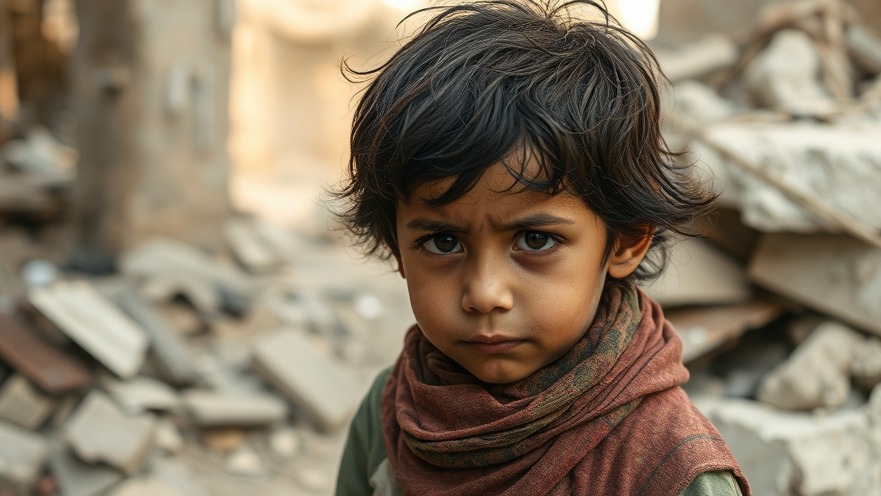
Trump's Uncertain Military Strategy in Iran: What It Means
Late-night television hosts have turned the spotlight on Donald Trump's uncertain military plans regarding Iran, with Jimmy Kimmel humorously remarking, "Who the hell knows what he’s gonna do?" The topic has sparked confusion among both the public and Trump’s own supporters. Kimmel highlighted the president's recent rhetoric that suggested potential military strikes, framing it as a split in trust among his loyalists, who seem to remain divided over the matter.
According to Kimmel, Trump mentioned that an answer to his deliberation would come in two weeks, humorously likened to someone who frequently uses the phrase “you’re fired.” This commentary not only underscores the irregularity of Trump's communication style but also reflects broader concerns regarding the unpredictability of military decision-making in a tense geopolitical climate.
Understanding the Broader Context: U.S.-Iran Relations
The discussion surrounding Trump’s Iran strategy is set against a backdrop of long-standing tension between the United States and Iran, marked by sanctions, military threats, and diplomatic negotiations. This ongoing conflict has raised questions about the implications of military action in the region, particularly considering historical precedents like the Iraq War under George W. Bush. Seth Meyers pointed out these parallels while addressing the sentiments among American citizens regarding a similar trajectory.
In contrast, experts emphasize that understanding these diplomatic nuances is crucial for digital nomads and those interested in global culture, as the ramifications extend beyond politics and into the realms of international travel, trade, and environmental policy. Eco-awareness is vital to fostering a sustainable global community, which is the forefront of many travel discussions today.
The Impact of Climate on Public Sentiment
Coinciding with Kimmel and Colbert’s comedic posts is the backdrop of the current heatwave affecting large swathes of the United States. Kimmel humorously noted it’s “too hot” for the Pope in the context of campaigns urging environmental awareness and necessary responses to climate change. This summer’s record heat adds another layer of urgency to these discussions surrounding public policy and the environment.
The interplay of climate issues with political narratives is something that digital nomads—particularly those invested in sustainable travel—should heed. As they explore various cultures, understanding how local environments interact with their political climates can be instrumental for fostering conscientious travel practices.
Juneteenth: A Day of Reflection Amidst Political Turmoil
This past week observed Juneteenth, a significant historical milestone commemorating the end of slavery in the United States. In light of this national holiday, Kimmel and Colbert provided a fresh perspective, critiquing the lack of engagement from certain political figures. Kimmel humorously suggested that those hesitant to celebrate might overly focus on their own narratives instead of recognizing the importance of equity and justice.
Recognizing such cultural moments highlights a deeper, more profound history that resonates with travelers and global citizens alike. Understanding the significance of these observations enriches the travel experience, allowing individuals to participate in conversations around race, history, and contemporary social justice issues during their journeys.
The Role of Comedy in Addressing Serious Issues
Late-night comedy serves as a critical forum for highlighting serious issues with humor, making political discourse more accessible to the wider public. Hosts such as Kimmel and Colbert often tackle difficult topics, providing a balance of levity and insight that resonates with viewers. By engaging with comedy, audiences find a relatable means of confronting political events and historical contexts.
For digital nomads traveling through cultures marked by political complexity, engaging with local comedians or satirists can provide a unique, nuanced understanding of local sentiments. It opens avenues for discussions on social issues, thus enhancing one’s travel experience beyond mere sightseeing.
Conclusion: Connecting Politics and Personal Experiences
As we navigate a world in flux, recognizing the intersection of politics, history, culture, and environmental issues will be essential for personal growth and understanding. With figures like Kimmel and Colbert at the helm, they challenge audiences to think critically about the state of the world. For travelers and digital nomads, there’s great value in engaging with these dialogues, allowing for deeper insights into the destinations they explore. The call to action is clear: cultivate an understanding of local dynamics while traveling to not only enrich your experience but also contribute positively to the cultures you engage with.
 Add Row
Add Row  Add
Add 




Write A Comment